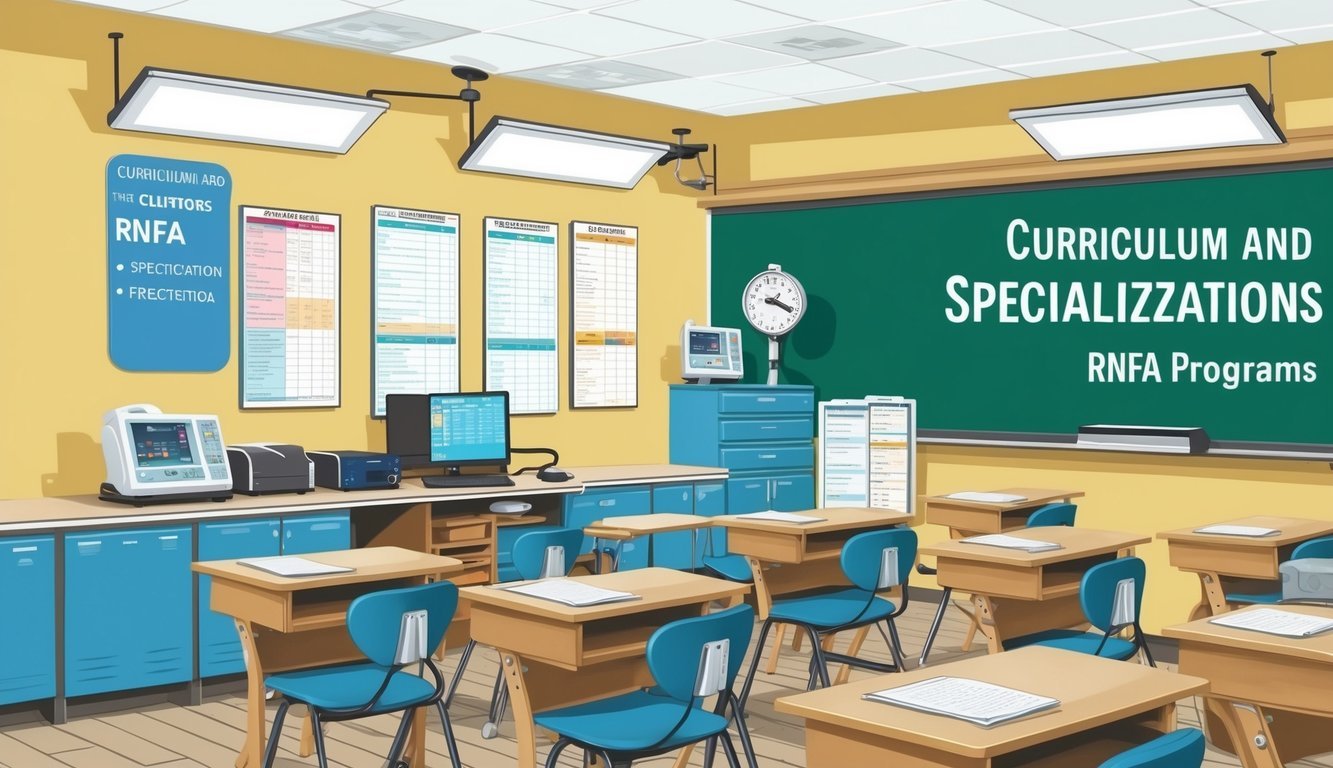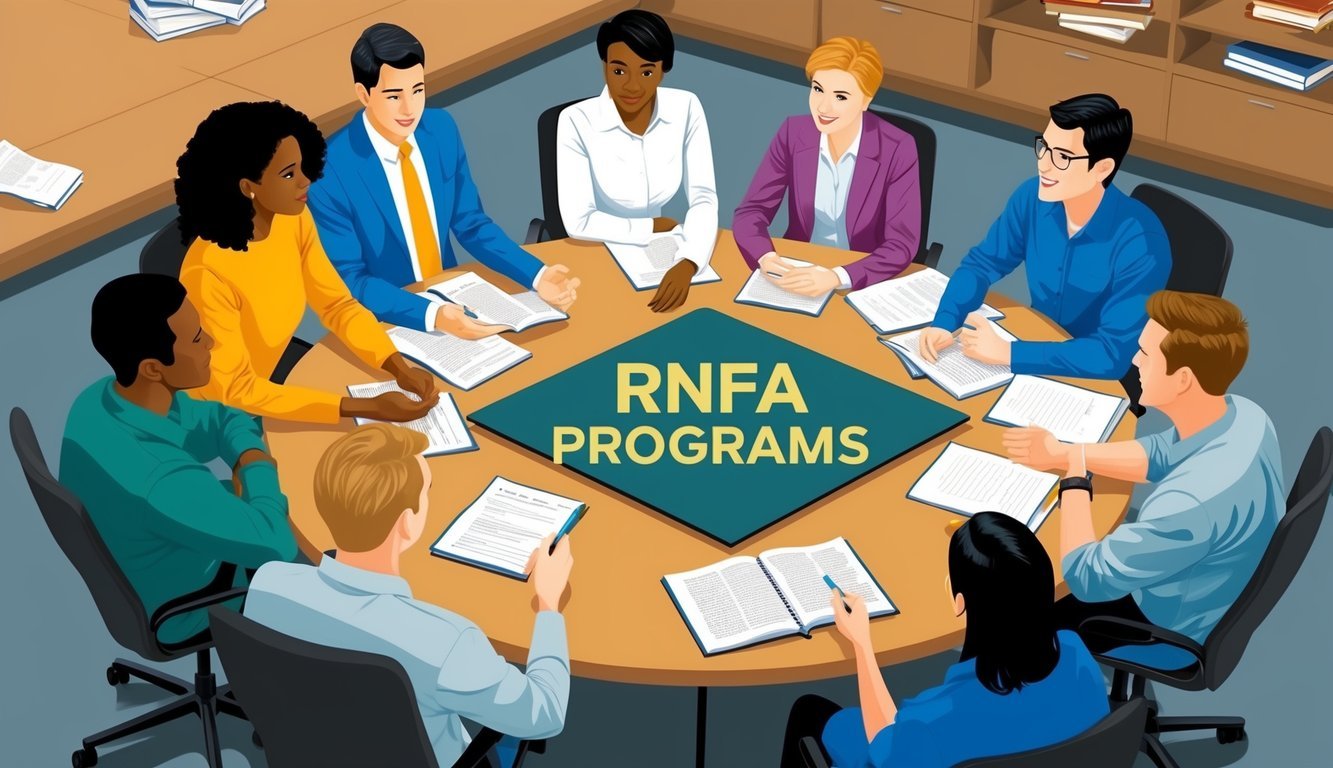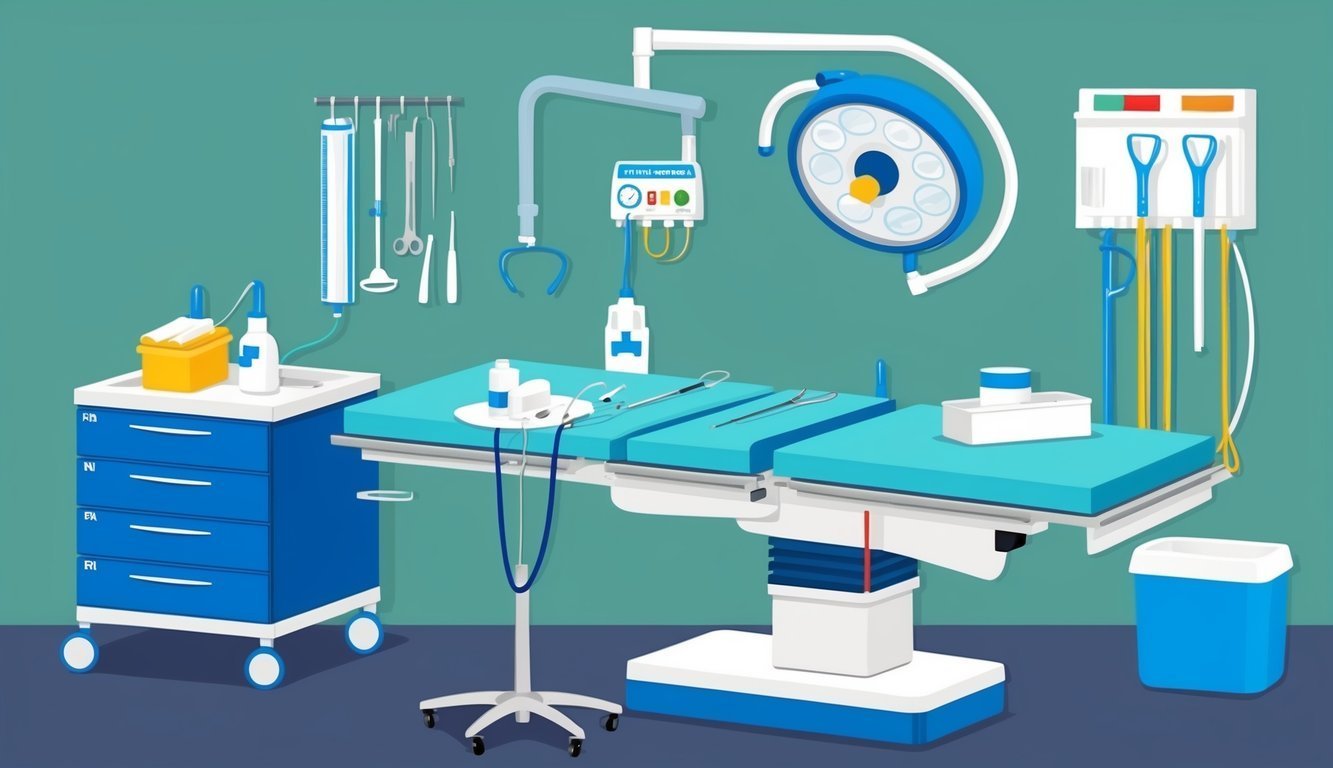Registered Nurse First Assistant (RNFA) programs are essential for nurses looking to advance their careers in surgical settings.
These programs prepare you to take on a vital role as a surgical first assistant, enhancing your skills and opening up new career opportunities in the field of nursing.
By participating in an RNFA program, you gain in-depth knowledge of surgical procedures, patient care, and specialized techniques that are crucial for success in the operating room.
In an RNFA program, you’ll typically experience a mix of online courses, hands-on clinical practice, and internships, allowing you to apply what you’ve learned in real-world settings.
This structured approach not only equips you with the necessary skills but also prepares you for various certifications that enhance your professional profile.
By exploring RNFA programs, you can discover the specializations available and resources for continuous learning.
As the healthcare industry evolves, your commitment to further education and skill development can make a significant difference in your career trajectory.
Key Takeaways
- RNFA programs prepare you for advanced roles in surgical nursing.
- You gain hands-on experience through clinical practice and internships.
- Continuous education is crucial for career advancement in this field.
RNFA Program Overview
The RNFA program prepares you for a crucial role in the surgical team.
This overview covers educational pathways, certification requirements, and program accreditation, important factors for your career as a Registered Nurse First Assistant.
Educational Pathways
To pursue an RNFA program, you typically need to hold a Bachelor of Science in Nursing (BSN).
Many programs also accept those with a Master of Science in Nursing (MSN).
If you seek advanced education, options like the Doctor of Nursing Practice (DNP) or Doctor of Philosophy (PhD) in nursing may enhance your career.
Programs often provide a mix of online and on-campus learning.
The National Institute of First Assisting (NIFA) offers comprehensive training, focusing on essential skills for first assistants.
Institutions adhere to AORN education standards, ensuring quality education.
Certification Requirements
After completing an RNFA program, you may pursue certification.
The Certified Registered Nurse First Assistant (CRNFA) credential is widely recognized.
To qualify, you must pass an exam that tests your knowledge and skills in perioperative care.
Some programs also prepare you for the Certified Nurse Operating Room (CNOR) exam.
Meeting these certification requirements validates your expertise and can enhance your job prospects in surgical settings.
Program Accreditation
Accreditation is vital for ensuring the quality of your education.
Legitimate RNFA programs should be accredited by recognized bodies.
Programs from NIFA are notable, with a high percentage of RNFAs trained through this institution.
Checking a program’s accreditation status allows you to ensure it meets educational standards.
Look for programs that align with AORN accreditation guidelines, as they focus on best practices in nursing education.
Accredited programs may offer a better foundation for your future career.
Curriculum and Specializations

The curriculum for RNFA programs includes essential knowledge in surgical procedures and specialized techniques.
You will learn about anatomy, physiology, and key surgical skills that help you assist during surgeries effectively.
Core Surgical Knowledge
In this part of the curriculum, you will gain a strong foundation in anatomy and physiology related to surgical practices.
You will study the human body’s systems, focusing on how they interact during surgical interventions.
Understanding this is crucial for effective tissue handling and surgical decision-making.
Key topics include:
- Anatomical landmarks: Learn to identify important structures during surgery.
- Physiological responses: Understand how the body reacts to surgical procedures and anesthesia.
- Surgical techniques: Familiarization with various approaches, like laparoscopic surgery, enhances your practical skills.
Many programs, such as those offered by AORN, emphasize these aspects to prepare you for your role.
Specialized Surgical Techniques
This section dives into specific surgical skills and techniques that you will need as an RNFA.
You will train in advanced tissue handling and suturing methods essential for various types of surgeries.
Focus areas include:
- Techniques for suturing and instrumentation: Master different suturing patterns and instrument usage.
- Handling complex tissues: Develop skills for working with delicate structures, like nerves and blood vessels.
- Minimally invasive procedures: Gain exposure to innovative techniques, crucial for modern surgery.
Hands-on training, combined with theoretical knowledge, ensures that you are well-equipped for the challenges of the operating room.
Programs like the one at UCLA Extension provide excellent resources to enhance your learning experiences.
Clinical Practice and Internship

Clinical practice and internships are crucial for gaining real-world experience as an RN First Assistant (RNFA).
Through these opportunities, you will develop practical skills and enhance patient outcomes.
Internship Requirements
To participate in an RNFA clinical internship, you usually need to meet specific requirements.
Most programs require you to hold a current registered nurse license.
You should also have at least two years of nursing experience, ideally in a perioperative setting.
Typically, the internship involves completing a certain number of surgical procedures under supervision.
You may also need to maintain logs detailing your experiences, such as surgical site exposure and wound management.
Programs like those offered by University of Rochester may provide structured guidelines to ensure you meet all requirements.
Hands-On Experience
Hands-on experience during your internship is essential for developing the skills needed as an RNFA.
Expect to participate in various stages of surgical procedures, including pre-operative assessments and post-operative care.
This experience not only equips you with technical skills but also enhances your understanding of patient outcomes.
Engaging with different surgical teams allows you to learn best practices for managing wounds and ensuring surgical site care.
Programs may offer about 130 hours of intra-operative training, which is vital for your development in this role.
For example, the RNFA program at NCAT emphasizes both online coursework and practical experience to prepare you for real clinical situations.
Career Advancement and Opportunities

As an RNFA, you have access to numerous opportunities for growth and professional development.
This role not only enhances your nursing skills but also places you in a favorable position in a growing healthcare field.
Job Outlook and Demand
The demand for RNFAs continues to rise due to an increasing focus on surgical outcomes and patient care.
As more hospitals recognize the value of first assistants, job openings are available across different healthcare settings.
According to the AORN salary survey, RNFAs earn competitive salaries that reflect their advanced skills and responsibilities.
The need for skilled professionals in surgical teams ensures that your qualifications as an RNFA will be highly sought after.
To become certified, you must pass the CRNFA examination.
This requirement further establishes your expertise and can enhance your job prospects significantly.
| Position | Average Salary |
|---|---|
| RNFA | $95,000 – $130,000 |
| Perioperative Nurse | $75,000 – $100,000 |
Professional Achievement
Achieving the RNFA designation represents a significant milestone in your nursing career.
This advanced certification demonstrates your commitment to continuing education and improving surgical patient care.
In addition to the CRNFA certification, staying engaged with professional organizations such as AORN can provide networking opportunities and access to resources.
These connections can lead to mentorship and additional training.
Your nursing experience is vital.
Many programs require prior nursing roles, which help to build your clinical skills.
Successful RNFAs often advance into leadership roles or specialized areas, such as vascular or orthopedic surgery, broadening your career path and impact in the healthcare field.
Continuous Education and Certifications
In the field of RNFA, continuous education and certifications are essential for maintaining your skills and enhancing your career.
This section covers key aspects such as maintaining your RNFA credentials and pursuing advanced certifications and degrees.
Maintaining RNFA Credentials
To keep your RNFA certification valid, you must engage in ongoing education.
Many programs require you to complete a certain number of continuing education units (CEUs) every few years.
It is important to check the specific requirements set by the certifying body.
You can earn CEUs through various formats, including online courses.
Organizations like the Association of periOperative Registered Nurses (AORN) offer valuable resources.
Additionally, you may find options for distance learning that cater to your scheduling needs.
Make sure to document your completed educational activities.
This documentation will be vital when you renew your RNFA certification, ensuring that you meet the eligibility criteria.
Advanced Certifications and Degrees
Furthering your education can provide you with advanced certifications.
One option is the CNOR certification, which demonstrates your commitment to excellence in perioperative nursing.
It may enhance your job opportunities and salary potential.
You can also consider obtaining advanced degrees, such as a Master of Science in Nursing (MSN) or Doctor of Nursing Practice (DNP).
These degrees can lead to higher-level positions in healthcare.
You might also pursue specialized training in advanced practice roles.
Certifications in Basic Cardiac Life Support (BCLS) and Advanced Cardiac Life Support (ACLS) can be beneficial.
These certifications add value to your skills and make you a more competitive candidate.
Consider exploring RNFA programs that integrate these advanced training opportunities.
They can help you stand out in a competitive job market.
Frequently Asked Questions

When considering RNFA programs, you may have specific questions regarding prerequisites, duration, costs, state recognition, career outcomes, and certification routes.
This section addresses these common inquiries, providing clear and concise information.
What are the prerequisites for enrolling in an RNFA program?
To enroll in an RNFA program, you typically need to be a licensed registered nurse (RN) with a Bachelor of Science in Nursing (BSN) degree.
Most programs also require at least two years of experience in perioperative nursing.
What is the typical duration of Nurse First Assistant programs?
Most RNFA programs can be completed in about 6 months to 2 years.
The duration depends on whether you attend full-time or part-time.
Programs approved by the Association of periOperative Registered Nurses (AORN) often fall within this timeframe.
How do the costs of various RNFA programs compare?
Costs for RNFA programs can vary significantly.
Tuition typically ranges from $6,000 to $30,000, depending on the institution and program format.
Online programs might be less expensive compared to in-person options.
Researching different schools can help you find a program that fits your budget.
Which states recognize the credentials of Registered Nurse First Assistants?
Most states recognize RNFA credentials, but specifics can vary.
You should check with your state’s nursing board to understand the regulations and requirements for practice in your location.
What are the potential career outcomes and salary expectations for RNFAs?
Registered Nurse First Assistants can anticipate a wide range of job prospects in surgical settings.
The salary for RNFAs typically ranges from $80,000 to $150,000 annually, depending on experience and geographic location.
Can Registered Nurse First Assistant certifications be obtained through online programs?
Yes, several institutions offer online RNFA certification programs.
These programs provide flexibility and often include clinical rotations, which are vital for hands-on experience.
Make sure to choose a program that is accredited and recognized in your state.

